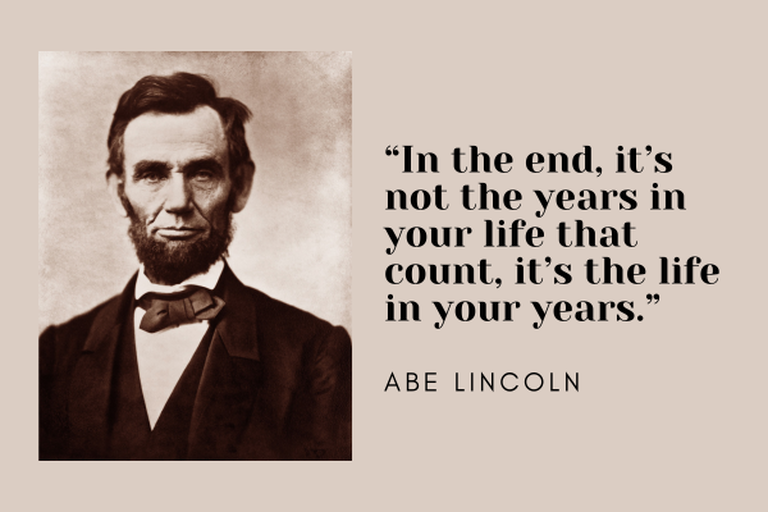|
Whether all family stories should be passed down for future generations depends on various factors, including the nature of the stories, their significance, and the preferences of the family members involved. Here are some considerations: Cultural and historical significance Stories that hold cultural or historical significance for a family may be particularly valuable to pass down. These stories can help preserve traditions, heritage, and the historical context in which the family lived. Positive and inspirational narratives Positive and inspirational family stories can serve as sources of motivation and guidance for future generations. Sharing stories of resilience, success, and overcoming challenges can inspire and strengthen family bonds. Lessons and values Stories that convey important lessons, values, and moral principles can contribute to the ethical and moral development of future generations. They provide a context for understanding the family's values and the reasons behind them. Personal growth and transformation Stories that highlight personal growth, transformation, or significant life events can offer insights into the individual journeys of family members. These narratives can foster empathy and understanding among family members. Privacy and sensitivity Some family stories may involve sensitive or private information. In such cases, it's essential to respect the privacy of those involved and carefully consider whether sharing these stories aligns with the wishes and comfort levels of family members. Diversity of perspectives Including a diverse range of perspectives in family stories can provide a more comprehensive understanding of the family's history. Different viewpoints contribute to a richer narrative that reflects the complexity of family dynamics. Consideration of relevance Not every family story may be equally relevant or meaningful to future generations. Assessing the significance and relevance of each story can help prioritize which ones to pass down. Methods of preservation Consider the methods of preservation for family stories. This could involve oral traditions, written records, audio or video recordings, or even digital platforms. Choosing appropriate methods ensures the longevity of the stories. Family consensus It's essential to involve family members in the decision-making process. Some individuals may feel strongly about preserving certain stories, while others may prefer to keep certain aspects private. Consensus and open communication are key. Balancing positivity and realism While sharing positive and inspiring stories is valuable, families may also consider incorporating realistic and challenging aspects. This can provide a more nuanced understanding of the family's history and the resilience demonstrated over time. Deciding whether or not to pass down certain family stories depends on your family's values, the nature of the stories, and the preferences of family members. Striking a balance between preserving cultural heritage, positive narratives, and respecting privacy ensures a thoughtful and meaningful approach to passing down family stories for future generations. Join the discussion on family storytelling in the Words Speak Louder Book Club. Content Insight
The content presented here is a collaborative effort between artificial intelligence (AI) technology and a human contributor with expertise in writing. Together, we aim to explore meaningful topics for the purpose of generating conversation, offering insights, and inspiring thoughtful discussions. While the AI contributes to the generation of content, the human expert provides guidance, context, and a nuanced understanding to enhance the overall quality of the material.
0 Comments
Determining who should be the keepers of your family history is an important decision that involves identifying individuals or a group of people who are committed to preserving, documenting, and sharing your family's stories. Here are some considerations to help you determine the keepers of family history. Identify interest and enthusiasm Look for family members who express a genuine interest in the family's history and have enthusiasm for preserving it. Passionate people are more likely to invest time and effort into the task. Commitment to tradition Identify those who value family traditions and understand the importance of passing down the family's cultural and historical heritage to future generations. Organizational skills Consider people who are organized and detail-oriented. Preserving family history often involves managing a variety of documents, photos, and information, so organizational skills are crucial. Technological proficiency In the digital age, it's helpful to have keepers who are comfortable with technology. This includes using genealogy software, managing digital archives, and using online platforms for sharing family history. Communication skills The keepers of family history should be good communicators. They need to be able to interview family members, document stories, and potentially present the information in a way that is engaging for others. Collaborative spirit Consider people in your family who are open to collaboration. Preserving family history is often a collective effort, and having keepers who can work well with other family members ensures a more comprehensive and inclusive record. Geographical proximity If possible, choose keepers who are geographically close to other family members or historical sites. This can facilitate the gathering of information and materials. Generational representation Aim for a mix of generations among the keepers. Having representatives from different age groups can help bridge generational gaps and ensure that diverse perspectives are considered. Record of family involvement Look at the track record of potential keepers in terms of their involvement in family events, reunions, and other activities. Those who have a history of active participation may be more dedicated to the task. Willingness to learn Family history preservation may involve learning new skills, researching historical contexts, and adapting to evolving technologies. Look for those who are willing to continually educate themselves. Family consensus Discuss the role with family members and seek their input. It's essential to have a collective agreement on who should be the keepers of the family history to ensure that everyone is on board with the decision. Succession planning Consider a succession plan. Family dynamics may change over time, so having a plan for transitioning the role of family historian to the next generation ensures the continuity of the preservation effort. Ultimately, the keepers of family history should be people who are passionate about the task, possess the necessary skills, and have the support of the family. By carefully considering these factors, you can create a team or designate individuals who will effectively carry out the important responsibility of preserving your family's legacy. Come join the conversation on family history preservation in the Word Speak Louder Book Club. Content Insight
The content presented here is a collaborative effort between artificial intelligence (AI) technology and a human contributor with expertise in writing. Together, we aim to explore meaningful topics for the purpose of generating conversation, offering insights, and inspiring thoughtful discussions. While the AI contributes to the generation of content, the human expert provides guidance, context, and a nuanced understanding to enhance the overall quality of the material. Preserving your family stories is a wonderful way to ensure that the experiences, memories, and wisdom of your ancestors are passed down through generations. Here are some practical steps to help you preserve and share your family stories. Start conversations Initiate conversations with older family members. Ask open-ended questions to encourage them to share their memories, experiences, and stories. Record these conversations if possible. Create a family tree: Build a family tree to visually represent the relationships between family members. There are online tools and genealogy software that can assist you in creating and documenting your family tree. Document interviews Record or transcribe interviews with family members. This can be done using a voice recorder, video camera, or smartphone. Ensure that you have their consent before recording. Collect photos and documents: Gather photographs, letters, diaries, and other documents that hold historical significance. Scan or digitize these items to ensure their preservation and share them with other family members. Create a family archive Establish a central location or digital archive to store family documents, photos, and recordings. Consider creating both physical and digital archives for easy accessibility. Organize information Categorize and organize the collected information. Create folders or databases that make it easy to locate specific stories, photos, and documents. Write family narratives Write narratives or stories based on the information you've gathered. This can be done in the form of a family history book, blog posts, or even short stories that capture key moments. Use technology Leverage technology to your advantage. There are genealogy websites, software, and apps designed to help you organize and share family history. Consider platforms like Ancestry.com, MyHeritage, or even social media for sharing. Preserve oral histories Consider creating an oral history project where family members record their own stories. This can include not only memories of the past but also thoughts on current events, values, and perspectives. Host family reunions Family reunions provide an excellent opportunity for sharing stories and creating new memories. Consider incorporating storytelling sessions or presentations during these gatherings. Educate younger generations: Share family stories with younger generations. Consider creating age-appropriate materials or activities to engage children and teenagers in the family history. Collaborate with relatives Encourage collaboration among family members. Create a shared online space where everyone can contribute stories, photos, and information. This collaborative effort can help fill in gaps and provide a more comprehensive family history. Consider professional help If your family history is extensive or if you encounter challenges, consider seeking the assistance of professional genealogists or archivists. By taking these steps, you can create a rich tapestry of your family's history that can be cherished by current and future generations. Remember that the preservation of family stories is a continuous process, and your efforts can have a lasting impact on the sense of identity and connection within your family. Join the conversation about preserving family history in our Words Speak Louder Book Club. Content Insight
The content presented here is a collaborative effort between artificial intelligence (AI) technology and a human contributor with expertise in writing. Together, we aim to explore meaningful topics for the purpose of generating conversation, offering insights, and inspiring thoughtful discussions. While the AI contributes to the generation of content, the human expert provides guidance, context, and a nuanced understanding to enhance the overall quality of the material. Writing your own obituary can be a reflective and meaningful exercise. While it may seem unconventional, it allows you to consider the aspects of your life that are most important to you and how you would like to be remembered. Here are some steps to guide you through the process: Reflect on your life Take some time to reflect on your life, considering significant events, accomplishments, relationships, and the values that have shaped you. Put some thought into the legacy you wish to leave. Consider your impact Think about the impact you've had on others and the contributions you've made to your community, family, or the world. Define your values and beliefs Identify the values and beliefs that are most important to you. Consider how these principles have influenced your choices and actions throughout your life. Capture key milestones Highlight key milestones and achievements, both personal and professional. Include education, career accomplishments, relationships, and any other significant life events. Describe your personality Share aspects of your personality, such as your sense of humor, passions, hobbies, and the qualities that define you as an individual. Acknowledge relationships Mention the people who have been important in your life, whether they are family, friends, mentors, or colleagues. Express gratitude for the impact they've had on you. Express regrets and lessons learned If you feel comfortable, acknowledge any regrets you may have and share the lessons you've learned from life's challenges. This adds a sense of authenticity to your obituary. Include your wishes If you have specific wishes for your funeral, memorial, or the way you'd like to be remembered, include them in your obituary. Write in the third person Typically, obituaries are written in the third person. Use your name and describe your life as if someone else is writing about it. Review and revise Take the time to review and revise your obituary. Consider seeking input from trusted friends or family members to ensure that your self-written obituary resonates with others. Share or store securely Decide whether you want to share your self-written obituary with someone or keep it in a safe and secure place. Some people choose to share it with a close friend or family member, while others keep it private. Remember, writing your own obituary is a personal and introspective activity. It's an opportunity to reflect on your life and express how you want to be remembered. Approach it with sincerity and the knowledge that it can be a powerful tool for self-reflection and sharing your story with others. As the years go by, you may also wish to revisit your obituary. Priorities change. Your view of yourself and your life may evolve over time. You can revise your obituary to reflect these changes. Come join the conversation on writing your own obituary and related topics in the Words Speak Louder Book Club. Content Insight
The content presented here is a collaborative effort between artificial intelligence (AI) technology and a human contributor with expertise in writing. Together, we aim to explore meaningful topics for the purpose of generating conversation, offering insights, and inspiring thoughtful discussions. While the AI contributes to the generation of content, the human expert provides guidance, context, and a nuanced understanding to enhance the overall quality of the material. Deciding on the legacy you want to leave is a personal and reflective process that involves considering your values, passions, and the impact you want to have on the world. Here are some steps you can take to help you determine the legacy you want to leave: Self-reflection Reflect on your values. Consider what principles and values are most important to you.
Identify your passions. Think about the activities and causes that truly inspire and motivate you.
Define your purpose Clarify your purpose in life. Determine the overarching purpose or mission that guides your actions.
Consider your impact Think about the impact you want to make. Consider the positive changes you want to bring to your community, society, or the world at large. Assess your skills and strengths. Identify the unique skills and strengths you possess that can contribute to making a difference. Connect with others Build relationships. Establish meaningful connections with others who share similar values and goals. Collaboration can amplify the impact of your legacy. Seek feedback. Talk to friends, family, mentors, or colleagues about your aspirations and seek their input. Others may offer valuable insights and perspectives. Create a plan Develop a roadmap. Outline specific actions and steps you can take to work toward your goals. Break down your legacy into manageable milestones. Be adaptable. Understand that plans may evolve over time, and it's okay to adjust your approach as circumstances change. Live with intention Make conscious choices. Align your daily decisions and actions with your values and long-term goals. Living with intention can help ensure that your legacy is consistent with your beliefs. Practice mindfulness. Regularly reflect on your life, choices, and progress to stay connected to your purpose. Document your journey Share your story. Consider documenting your experiences, lessons learned, and achievements. This can provide inspiration for others and contribute to the narrative of your legacy. Remember that your legacy is not only about what you achieve but also about the positive influence you have on others and the world around you. It's a continuous process of growth, learning, and contributing to the betterment of society. Join our conversation on leaving a legacy and related topics in the Words Speak Louder Book Club. Content Insight
The content presented here is a collaborative effort between artificial intelligence (AI) technology and a human contributor with expertise in writing. Together, we aim to explore meaningful topics for the purpose of generating conversation, offering insights, and inspiring thoughtful discussions. While the AI contributes to the generation of content, the human expert provides guidance, context, and a nuanced understanding to enhance the overall quality of the material. |
AuthorTuned in, turned on, and writing about things that matter to me. Archives
February 2024
Categories |






 RSS Feed
RSS Feed
